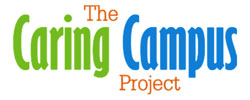Alcohol use among residents of Halifax is a longstanding issue, according to data from a 2014 study by the municipality.
In the past 12 months alone, the Capital District Health Authority reported the percentage of heavy drinking at 51 per cent, seven percentage points above the national average. Who makes up 90 per cent of those heavy drinkers? Young adults ages 19-24.
Against a backdrop of concerning statistics on binge drinking, a group of researchers at Dal are taking action. In partnership with QueenÔÇÖs University and the University of Calgary, ╣¹¢┤╩ËãÁ has launched the new this month. The project, funded by Movember Canada, aims to reduce alcohol and drug misuse among first-year university students, particularly males.
Addressing misinformation
The project at Dal is led by two primary investigators, Dr. Michael Teehan (associate professor in the Department of Psychiatry and assistant dean of Student Affairs in the Faculty of Medicine) and Dr. Sherry Stewart (professor in the Departments of Psychiatry and Psychology & Neuroscience). Their team consists of postdoctoral fellow Dr. Kara Thompson, Research Assistants Jennifer Swansburg and Parnell Davis-MacNevin and Psychology graduate student Annie Chinneck.
 ÔÇ£Heavy drinking and binge drinking is almost twice as prevalent in men as it is in women, and in many ways, this population of young men coming to university are very vulnerable,ÔÇØ says Dr. Teehan.
ÔÇ£Heavy drinking and binge drinking is almost twice as prevalent in men as it is in women, and in many ways, this population of young men coming to university are very vulnerable,ÔÇØ says Dr. Teehan.
ÔÇ£Being away from home for the first time, theyÔÇÖre subject to peer pressure and are being given misinformation or misinterpreting information about the rates of drinking among their peers, and therefore are trying to meet those norms they think are there which are actually false.ÔÇØ
To combat these perceived norms and other elements of the problem, the initiative is divided into two phases. The first phase will distribute surveys to first-year students about their alcohol and substance use, while the second phase will analyze the data to implement appropriate intervention strategies. The information collected will also be used as a baseline to give ongoing feedback to students and faculty on what issues need to be addressed on the Dal campus.
Are you a first-year student?
The survey asks students about their use of alcohol, rates of binge drinking, use of other illicit or prescription drugs and their perceptions of how much other students are using these substances. ÔÇ£WeÔÇÖll also be looking at associated mental health issues that go hand in hand with alcohol and substance misuse like levels of depression and anxiety,ÔÇØ explains Dr. Stewart.
In order to reach out to first-year students, the research team has formed a partnership with Dal Student Services. Zane Robison, executive director of student life and chair of the Alcohol Advisory Committee, couldnÔÇÖt be more excited about the project. ┬á
ÔÇ£The initiative aligns very closely with a lot of the things that weÔÇÖre trying to accomplish, including addressing the culture of alcohol thatÔÇÖs present in most universities and reducing harm for our students,ÔÇØ says Robison. ÔÇ£Having credible research that allows us to make informed decisions and move forward is a really important mandate for the institution.ÔÇØ
Programs and supports
Kaity DÔÇÖAgostino, a third-year student who recently joined the Dal Student Life Street Team, thinks the Caring Campus Initiative is a great addition to what Dal is already doing to create an incredible school community.
ÔÇ£I think that Halifax is known for being a bit of a party city, and while our impressive night life is something that students love, it's also important to offer alcohol-free events for students,ÔÇØ she says. ÔÇ£There is always something going on around Dal, and you should never have to feel pressured to drink in order to have fun.ÔÇØ
DÔÇÖAgostino and Robison both highlighted , a program that hosts events on Thursday, Friday and Saturday nights, as an opportunity for students to meet people with similar interests, socialize and try new things without the need for alcohol.
The research team is confident the project and its findings will be fundamental in addressing the alcohol and substance culture at universities and expanding DalÔÇÖs alcohol-free student life activities.
ÔÇ£I think the momentum to do something has been building,ÔÇØ Dr. Teehan says. ÔÇ£Not only does this project come at an opportune time, but with teams across three campuses that have different geographical locations and different cultures, it gives us the opportunity to intervene in those places and see if we can truly affect change.ÔÇØ
Connect with the Caring Campus project on and .

